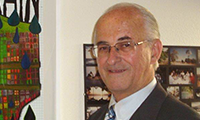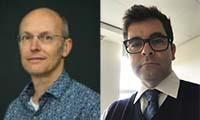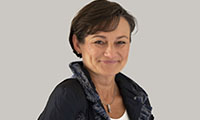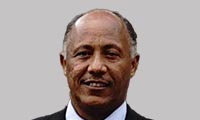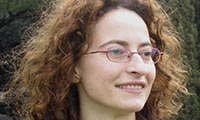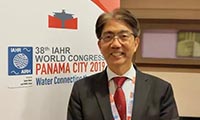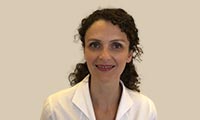Members voices | IAHR Talks
Our members, their views, knowledge, commitment, and experiences are what make IAHR a global leading association of hydro-environmental engineers, experts, researchers, and organisations. IAHR members’ voices and concerns guide the association on its continuing path towards a better future for water and the environment. Our members have a lot to contribute and we are listening to them so that we can put our collective voice forward.
David Ferras, vice-chair of the IAHR technical committee on Education and Professional Development, interviews IAHR members.
Interview with Mónica Fossati
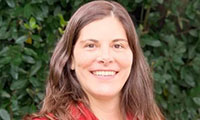
Focus on women engineers
Dr Mónica Fossati, professor at the Institute of Fluid Mechanics and Environmental Engineering (IMFIA) of the University of the Republic in Uruguay, and an active member of the IAHR Latin American Division, shares with us her interests as well as the highlights and achievements of her career on the occasion of the International Women in Engineering Day celebrated on 23 June every year.
Interview with Angelos Findikakis
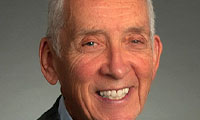 Focus on sustainable development
Focus on sustainable development
Angelos Findikakis, Bechtel Fellow, Bechtel Corporation, and Adjunct Professor, Stanford University, USA, is chair of the IAHR working group on Sustainable Development Goals and vice-chair of the IAHR working group on Global Water Security. He recounts some of the highlights of his career and shares his thoughts on the role and challenges of technology in the engineering profession, the importance of bridging the gap between science and industry, and the latest updates from the IAHR in the area of sustainable development.
Interview with Isabella Schalko
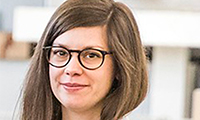 Focus on Women and Girls in Science
Focus on Women and Girls in Science
Dr Isabella Schalko, IAHR member since 2017, and member of the IAHR technical committees on Fluvial Hydraulics, Fluid Mechanics and Ecohydraulics, shares some highlights of her career with us and tells us all about the IAHR Coffee Chat series and the upcoming 2nd IAHR Coffee Chat that will take place on 11 February to celebrate the International Day of Women and Girls in Science.
Interview with Professor Helmut Kobus
Professor Helmut Kobus, President of IAHR from 1995 to 1999, Honorary Member of IAHR, and member of the IAHR technical committee on Groundwater Hydraulics and Management, shares with us his views about the history of the association, the interrelation among consulting engineers, governmental representatives, and researchers throughout the IAHR network, the scientific milestones that have had the greatest effect on IAHR, and the most critical challenges the association will have to face over the next 85 years.
Interview with Gregory Pasternack and Roser Casas-Mulet
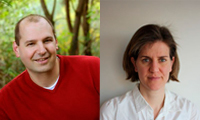 Focus on Ecohydraulics
Focus on Ecohydraulics
Gregory Pasternack, chair of the IAHR technical committee on Ecohydraulics, and Roser Casas-Mulet, member of the committee, share with us their views about ecohydraulics, forthcoming activities from the committee, including a session on ecohydraulics to be held at the First Young Professionals Congress this month and the upcoming International Symposium on Ecohydraulics webinar, as well as the role the association plays in this regard at the international level.
Interview with Roger Falconer
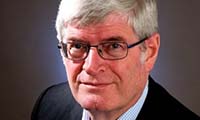 Focus on water security
Focus on water security
“COVID-19 has created many challenges in terms of water security and, most notably, what are the effects of the disease in entering the water system and how does the disease advect and diffuse through the system? However, it has also brought many opportunities in terms of global water security”.
Roger Falconer, Past President of IAHR (2011-15), chair of the IAHR working group on Global Water Security and Emeritus Professor of Water Engineering at Cardiff University, School of Engineering, shares with us his views on water security and on the role the association plays in this regard.
Interview with Wim Uijttewaal and Mario Franca
The first ever online River Flow conference was held from 6 to 17 July 2020. Organized under the auspices of the IAHR technical committee on Fluvial Hydraulics, and with more than 420 participants and 300 papers presented, the conference took stock of the current state of fluvial hydraulic research advances. The success of the event was possible thanks to the keynote lecturers and the special session chairs, who responded and adapted very quickly to the circumstances. Wim Uijttewaal (TU Delft) and Mario Franca (IHE Delft and TU Delft) share their experience as co-organizers of the first large IAHR online conference, River Flow 2020.
Interview with Silke Wieprecht
“We currently have about 25 per cent women in the association. So, within the next five years in IAHR, we can and want to reach the number of 30 per cent women that work in the engineering sciences on the whole. But this should also be reflected in the leadership teams…”
Gender equity within IAHR is one of the main concerns of Silke Wieprecht, vice-president of IAHR and chair of the recently created task force on Strengthening Gender Equity.
Interview with Séverin Stähly
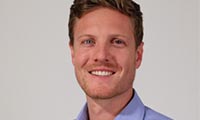 Focus on innovations in hydropower
Focus on innovations in hydropower
"The future depends on what we do in the present".
Enthusiastic about innovative solutions for climate change-related challenges, Séverin Stähly, a young professional engineer and doctor in civil and environmental engineering with EPFL, is used to working in international, interdisciplinary and scientific environments with people from different cultures and backgrounds. He shares with us his views on natural hazards and innovations in hydropower, energy turnaround, water management challenges and the development of young professionals.
Interview with Yilma Seleshi
“At the start of my career, only three universities provided engineering education. In the last 30 years the universities have grown to more than 30, located in various regions of Ethiopia, for which the department of Civil Engineering of Addis Ababa University contributed to the establishment of Civil Engineering program curricula, laboratories, and staff development through post graduate programs. Hydro-environment research though still has many unknowns in Ethiopia and problems and solutions are site-specific in many aspects...”
This is a special opportunity for IAHR to convey the views of Prof. Yilma Seleshi, who has a broad experience in water resources projects, education and research in Ethiopia. During the interview he shared some of his thoughts concerning the development of hydro-environment engineering and research in the African context, the urgent needs in terms of water resources management, the impact of large engineering projects such as the Grand Ethiopian Renaissance Dam, and the contribution that our association can bring to all the raised issues.
Interview with Claudia Adduce
Focus on research and early career researchers
“Early career researchers should try to have scientific and professional interactions with other students or researchers by accepting opportunities for research stays in different institutions and/or participating in congresses and master classes...”
Claudia Adduce, Associate Professor of the Department of Engineering from Roma Tre University, shares with us her professional experience as a young academic and IAHR member.
Interview with José M. Carrillo
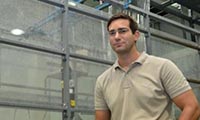 Focus on professional development and IAHR activities in Latin-America
Focus on professional development and IAHR activities in Latin-America
"I live in a challenging region. It has one of the highest risks of desertification in Europe and, at the same time, it suffers serious floods due to intense rainfall events. We also have one of Europe's largest saltwater lagoons and an intensive agricultural zone in the surrounding area…”
José M. Carrillo, associate professor in Civil Engineering at the Polytechnic University of Cartagena (UPCT), Spain, president of IAHR South East Spain YPN, editor of the Revista Hidrolatinoamericana del Agua and editor of Newsflash Iberoamérica shares with us his professional experience as a young academic and IAHR member.
Interview with Arthur Mynett
 Focus on new hydro-disciplines
Focus on new hydro-disciplines
“Hydroinformatics is about the use of information and communication technologies in the field of water science and engineering. Over the past decades we’ve seen a great number of rapid developments in ever-advancing hardware and software technologies. At the same time, environmental issues have become more and more prominent in the hydro sciences, which led to the concept of the hydro-environment…”
Arthur Mynett, Prof. Emeritus at IHE Delft, shares with us his professional passions, his involvement with the association and his love for guitar playing.
Interview with Joseph Hun-Wei Lee
“The word Hydro-environment was formally adopted during the IAHR World Congress 2009 in Vancouver, however there were many discussions about it before that year. Hydro-environment reflects where the world of water science and engineering is heading, because water environment problems have provided the momentum for the development of the field and, consequently, many IAHR members are currently working on these problems…”.
Joseph Hun-Wei Lee, new president of IAHR, shares with us his vision for the association and its potential to contribute to solving the many water challenges that lie ahead.
Interview with Silvia Meniconi
“My main research contribution is in the diagnosis of pressurized pipe systems using hydraulic transients. Small pressure waves can be a powerful tool for detecting any faults (e.g., leaks, blockages, wall deteriorations, illegal branches) in pipes. Part of my satisfaction in this work comes from the fact that we started with numerical analysis, then we conducted experiments in the Water Engineering Laboratory of the University of Perugia, and finally we moved to the real world, where we’ve had the chance to carry out field tests in actual pipe systems…”
Silvia Meniconi, Associate Professor at the University of Perugia, co-leads the new IAHR working group on Hydraulic Transients and shares with us her thoughts on this cross-cutting topic and the importance of cross-collaboration with other working groups and technical committees.
